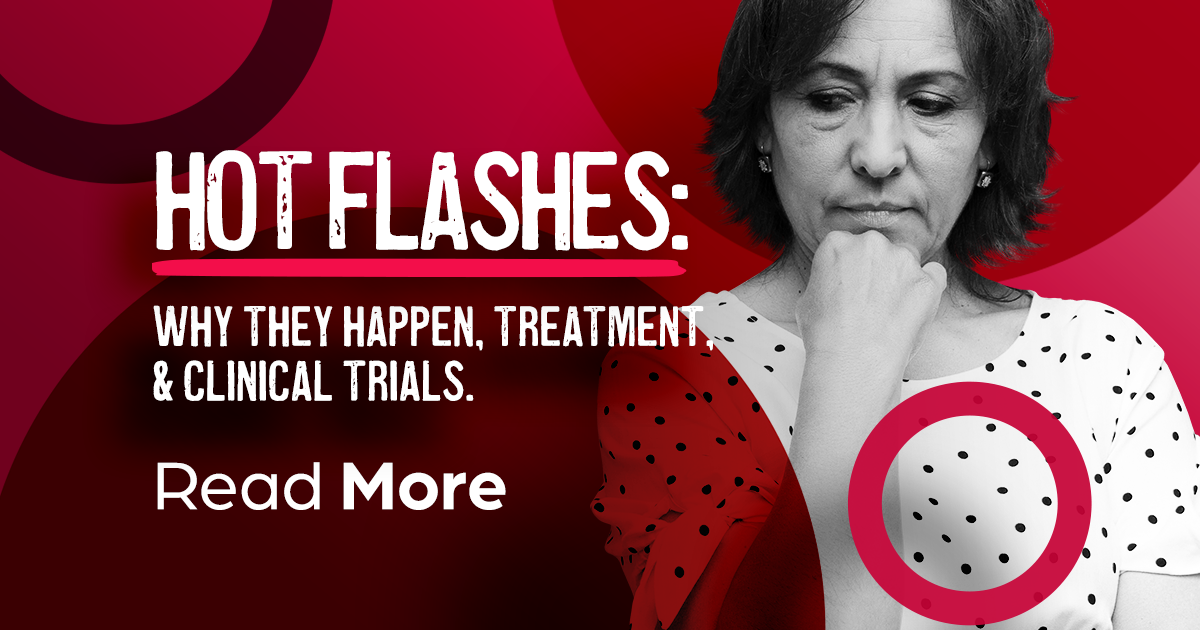Nearly two-thirds of women experience hot flashes heading into and during menopause. It is the most common discomfort experienced during that time. Every woman who experiences hot flashes has a unique experience as they can be mild or go all the way to interfering with daily life. Although common, it is not something you have to “deal” with as a part of the aging process.
What are Hot Flashes?
Hot flashes occur when your body mistakenly senses that a woman’s body is too warm and takes steps to cool her down. It does this by enlarging the blood vessels near the skin’s surface to allow for increased blood flow. This is an attempt to help disperse the body heat.
A sudden rush of heat that results in a flushed appearance to the face, neck and upper body is created. Women may also sweat and have a fast heartbeat during them as well. The frequency, severity, and duration are different for each woman. In more severe cases, they can disrupt sleep, and seemingly take over your life. In most cases, they last on average six months to two years, while some report experiencing them for considerably longer.
Why Do They Happen?
There are no definitive causes of why hot flashes happen. It is believed they may have something to do with changes to the hypothalamus, which helps regulate body temperature.
Treatment Options and Clinical Trials
Hot flashes cannot be prevented, and there is no cure. Current treatments can provide relief of symptoms and learning what triggers them helps reduce the frequency. In milder cases, treatment may not be needed, but every woman is different. Medications containing hormones (estrogen, progestin, or a combination of both) are an option. For those that cannot take or prefer not to take hormones, non-hormonal options such as medications approved to treat depression (SSRIs) are available.
Avoiding things that can trigger a hot flash such as stress, caffeine, alcohol, spicy food, and tight clothing may help lessen how strong they are and how often they happen.

More work in clinical research and studies is needed to understand better why hot flashes happen. Deciding to participate in a research study is an essential step in the improvement in management for women experiencing hot flashes. To learn more about our hot flash studies currently enrolling here at Infinite Clinical Trials, call (678) 430-3232, or visit us here.
References:

